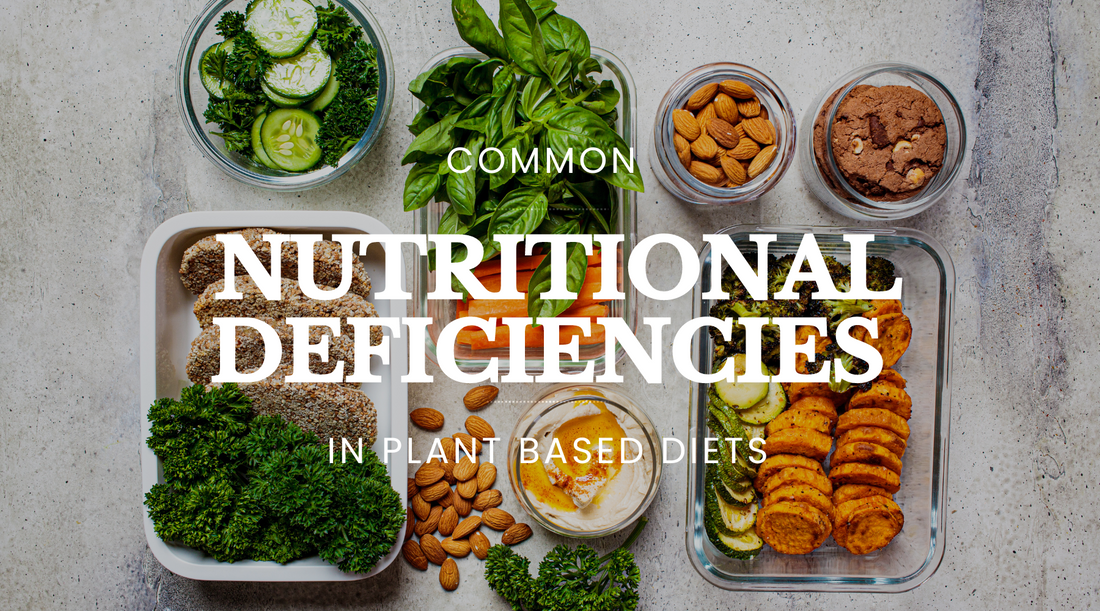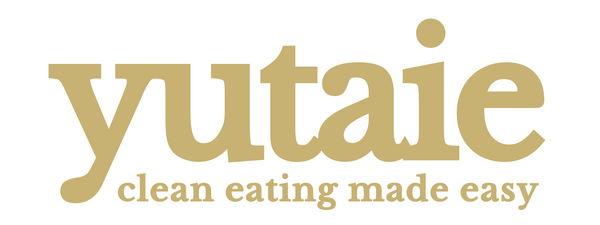
Common Nutritional Deficiencies in Plant-Based Diets
Share
Adopting a plant-based diet can bring a myriad of health benefits, including a reduced risk of chronic diseases, better heart health, and a lighter environmental footprint. However, while plant-based diets are rich in fruits, vegetables, and whole grains, they may also lead to certain nutritional deficiencies if not properly planned. In this blog post, we’ll explore the most common nutritional gaps that people on plant-based diets may experience and how to address them to maintain optimal health.
1. Vitamin B12 Deficiency
One of the most well-known deficiencies in plant-based diets is vitamin B12. This essential vitamin supports red blood cell production, neurological function, and DNA synthesis. The issue with B12 is that it's predominantly found in animal products like meat, dairy, and eggs, making it difficult for those on a strict plant-based diet to get enough.
Signs of Deficiency: Fatigue, weakness, memory issues, and numbness in the hands and feet.
How to Avoid It: Fortified plant-based milks, nutritional yeast, and B12 supplements are the best sources of this vitamin for those avoiding animal products. A regular B12 supplement (250-500 mcg daily) is recommended to maintain healthy levels.
2. Iron Deficiency
Iron is crucial for transporting oxygen in your blood and supporting energy levels. While iron can be found in plant-based sources like lentils, spinach, and chickpeas, it's in the form of non-heme iron, which is less efficiently absorbed by the body compared to the heme iron found in animal products.
Signs of Deficiency: Pale skin, fatigue, dizziness, headaches, and shortness of breath.
How to Avoid It: Increase your intake of iron-rich plant foods and pair them with vitamin C-rich foods like bell peppers or citrus fruits, which help boost iron absorption. If you're still struggling with low iron levels, an iron supplement may be necessary, especially for women of reproductive age.
3. Omega-3 Fatty Acids Deficiency
Omega-3 fatty acids, specifically EPA and DHA, are essential for brain health, heart function, and reducing inflammation. These fatty acids are most abundant in fish, which are off-limits on a plant-based diet. While some plant-based foods contain ALA (alpha-linolenic acid), such as flaxseeds and chia seeds, the body is not efficient at converting ALA into EPA and DHA.
Signs of Deficiency: Dry skin, brain fog, depression, and joint pain.
How to Avoid It: Consider taking an algae-based Omega-3 supplement to provide direct sources of DHA and EPA. Algae supplements are a plant-based solution that delivers the same benefits as fish oil.
4. Vitamin D Deficiency
Vitamin D plays a crucial role in calcium absorption, bone health, and immune function. While your body can produce vitamin D when exposed to sunlight, many people, especially those living in colder climates or spending a lot of time indoors, may not get enough sun exposure to maintain adequate levels. In a plant-based diet, vitamin D sources are often limited, unless fortified foods like plant milks or cereals are consumed.
Signs of Deficiency: Bone pain, muscle weakness, frequent illnesses, and fatigue.
How to Avoid It: Consider taking a vitamin D supplement, especially during the winter months or if you get limited sun exposure. Opt for vitamin D3 supplements made from lichen (a plant-based source of D3) rather than the animal-derived version.
5. Calcium Deficiency
Calcium is critical for maintaining strong bones and teeth. While dairy is the most common source of calcium in the standard diet, many plant-based eaters who avoid dairy may not be getting enough calcium from their food. Leafy greens like kale and broccoli are good sources, but they may not provide enough calcium to meet your daily needs.
Signs of Deficiency: Brittle nails, muscle cramps, weak bones, and increased risk of fractures.
How to Avoid It: Include calcium-fortified plant milks, tofu, almonds, and leafy greens in your diet. If you’re still not hitting the recommended intake, consider taking a calcium supplement paired with vitamin D to improve absorption.
6. Zinc Deficiency
Zinc is a mineral that supports immune function, wound healing, and DNA synthesis. It's primarily found in animal products, making plant-based eaters more susceptible to zinc deficiency. While some plant-based foods like beans, nuts, and seeds contain zinc, they also have phytates, compounds that reduce zinc absorption.
Signs of Deficiency: Frequent colds, slow wound healing, hair loss, and poor skin health.
How to Avoid It: Eating a variety of zinc-rich plant foods like chickpeas, lentils, and pumpkin seeds can help, but if you’re concerned about your zinc levels, a supplement of 8–11 mg daily may be beneficial.
7. Iodine Deficiency
Iodine is necessary for proper thyroid function and regulating metabolism. Many people obtain iodine from dairy and seafood, but on a plant-based diet, iodine sources can be limited. While sea vegetables like seaweed are rich in iodine, they may not be consumed regularly enough to meet daily needs.
Signs of Deficiency: Swelling in the neck (goiter), fatigue, weight gain, and feeling cold.
How to Avoid It: Use iodized salt in your cooking, and if needed, take an iodine supplement (150 mcg daily) to ensure your thyroid remains healthy.
8. Protein Deficiency
Protein is essential for muscle repair, immune function, and overall cellular health. While it’s a myth that you can’t get enough protein on a plant-based diet, some people, especially athletes or those with higher protein needs, may struggle to get enough from plant foods alone.
Signs of Deficiency: Muscle loss, fatigue, weakened immune system, and slow recovery after exercise.
How to Avoid It: Incorporate a variety of plant-based protein sources like lentils, beans, tofu, tempeh, quinoa, and seitan into your diet. If needed, a plant-based protein powder can help you meet your protein goals.
Conclusion
While plant-based diets can be rich in nutrients and beneficial for overall health, it’s important to be mindful of potential nutritional gaps. By paying attention to these common deficiencies and taking steps to avoid them, such as incorporating fortified foods or supplements, you can thrive on a plant-based diet and maintain optimal health. Always consult with a healthcare professional or nutritionist to determine your specific nutritional needs and ensure you're meeting all of your dietary requirements.
Are you concerned about deficiencies on a plant-based diet? Start by tracking your nutrient intake and consider adding high-quality supplements to your routine where necessary to support long-term health.

